
Begin with breakfast
“Breakfast is not the place to save on calories,” says Toronto-based registered dietitian Mary Bamford. Too often our diets begin with a light breakfast that lacks in protein and other nutrients, which triggers us to overload on food later in the day.
Bamford says breakfast should consist of as many calories as dinner, if not more. One of the most common diet mistakes people make is skimping on calories throughout the day, only to have a large meal at night.
“It would be almost like filling up your car tank at the end of the day to go nowhere but sit in a garage,” she says. “Breakfast is when your body needs food for you to get moving in the day.”
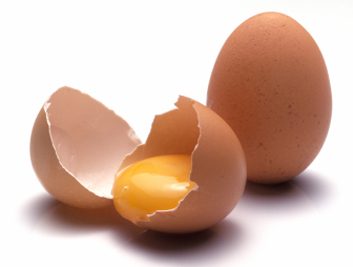
Fuel with protein
We lose muscle mass after middle age, which slows metabolism and can lead to weight gain. Research shows that diets with up to 50-percent protein may help and are safe for most (except those with kidney disease). A 130-pound adult could aim for 70 grams daily. Ensure you’re getting enough protein by adding eggs, low-fat milk and lean meats to your diet.
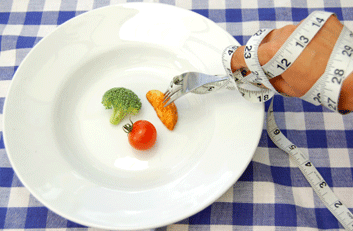
Watch your portion size
It’s a simple fact: Eat less and you’ll lose weight. There’s good evidence that over the past 50 years, restaurant portions have “super-sized,” and our waistlines have grown along with them. We’ve become accustomed to eating larger servings to the detriment of our health.
To reduce your portion size use a smaller plate for meals and put away the leftovers before you begin eating so you’re not tempted to go back for seconds.
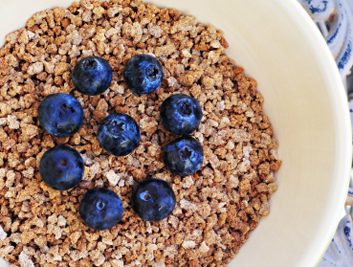
Add fibre
Filling fibre in whole grains like oatmeal, brown rice and whole-wheat bread is not only linked to lower weights, it can also reduce belly fat and blood-vessel inflammation that boosts the risk of heart disease, according to a 2008 Pennsylvania State University study.

Eat at home
The average Canadian family now spends almost 30 percent of total food dollars at restaurants and fast-food joints, according to Statistics Canada. To save money and pounds, start tracking how often you eat out and how much you spend on those meals each month, then gradually cut back.
“People who eat out a lot tend to eat less-healthy food and to be heavier,” says Melodie Yong, dietitian for the Heart and Lung Institute of St. Paul’s Hospital in Vancouver. In fact, the decline of cooking at home, linked in part to the increasing number of women in the workforce, tracks very closely with the rise in obesity over the past 30 years, she notes.
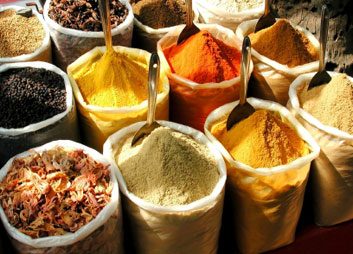
Add some spice
According to a study from Chicago’s Smell & Taste Treatment and Research Foundation, boosting the flavour of food could contribute to weight loss. The study’s author, Dr. Alan Hirsch, explains that seasoning low-calorie foods, sniffing the food before you eat it and chewing for longer than usual may make you feel full sooner-and eat fewer calories.

Indulge smart
Satisfy your sweet tooth in 100 calories or less! Hundred-calorie snack packs are all the rage on grocery store shelves, with slimmed-down chocolate bars and Lilliputian cookies forming the majority of such portion-controlled fare. But if you want to stay away from the excess packaging and save a little dough, try making your own 100-calorie sweet snacks, and indulge whether you’re at home or on the go.
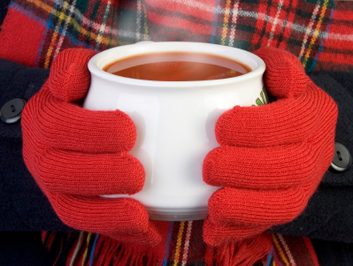
Fill up on hot foods
Hungry days require some appetite taming, as do special occasions. For example, going on an empty stomach to a restaurant with fabulous bread is guaranteed to lead to overeating. When a ferocious hunger hits, hot foods and beverages are more satisfying than cold options. Soup carries that satisfaction even further, so keep an assortment of lower salt broth-based soups on hand. Load them up with vegetables for more filling goodness and an added health perk.
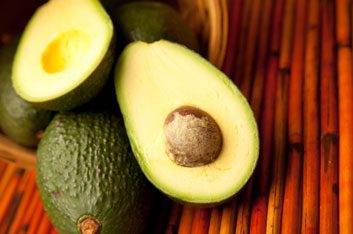
Enjoy good fats
According to the Harvard School of Public Health, when it comes to weight gain or disease, the type of fat you consume is more important than the amount of fat you consume.
Good fats are a dieter’s friend because they can help you feel satiated after meals and maintain steady blood sugar levels for longer between meals, says Dr. Melissa Hershberg , author of The Rebel Diet: Break The Rules, Lose The Weight.
Try these sources of healthy fats: oily fish like mackerel, salmon and sardines, seeds and tree nuts, olive oil, avocado and dark green veggies like broccoli, spinach and kale.

Savour each bite
Eat slowly. It can take half an hour for the brain to realize the stomach is full so don’t rush your meals. It’s a principal reason we overeat. Always put your fork down between mouthfuls.
Related:
• 10 snacks that will help you lose weight
• How friends can help you lose weight
• Summer Slim-Down: 8 weeks to a healthier you
